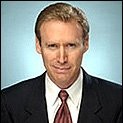James Burnham's Email & Phone Number
American philosopher
James Burnham's Email Addresses
Find personal and work emails for over 300M professionals
Not the James Burnham you were looking for? Continue your search below:About James Burnham
📖 Summary
James Burnham was an influential American philosopher, political theorist, and writer known for his contributions to the fields of conservatism, geopolitics, and international relations. Born in Chicago in 1905, Burnham attended Princeton University and later pursued graduate studies at Balliol College, Oxford. He emerged as a prominent figure in conservative intellectual circles during the mid-20th century, and his ideas continue to shape contemporary debates on political philosophy and foreign policy.
Burnham first gained widespread recognition with the publication of his book "The Managerial Revolution" in 1941. In this seminal work, he argued that the traditional capitalist class was being supplanted by a new managerial elite that controlled the means of production and wielded disproportionate influence over the direction of modern societies. Burnham's analysis of the rise of managerialism foreshadowed later critiques of corporate power and the concentration of wealth in the hands of a small, technocratic elite.
Throughout his career, Burnham remained a staunch advocate of anti-communism and a vocal critic of the Soviet Union. In his influential work "The Machiavellians: Defenders of Freedom," Burnham explored the political theories of Machiavelli, Pareto, and Mosca, and applied their insights to the challenges of his own era. He argued that the struggle for power and influence was intrinsic to all political systems, and that the United States should be prepared to confront and contain the expansionist ambitions of the Soviet regime.
In the context of the Cold War, Burnham's ideas found a receptive audience among policymakers and intellectuals who sought to develop a coherent strategy for countering the spread of communism. His vision of a world divided between the democratic West and the totalitarian East helped to shape the contours of American foreign policy during the post-war period, and his advocacy for a robust, assertive stance against Soviet aggression resonated with many conservatives and hawks.
At the same time, Burnham's intellectual trajectory underwent a significant shift in the 1960s, as he became increasingly disillusioned with the conservative movement and the prospects for a successful anti-communist crusade. He grew critical of what he saw as the moral and strategic weaknesses of the West, and his later writings reflected a more pessimistic and fatalistic outlook on the global balance of power. Burnham's evolution from a leading Cold Warrior to a maverick thinker who questioned the assumptions of the military-industrial complex and the efficacy of American grand strategy marked him as a provocative and controversial figure in the world of conservative thought.
Despite his ideological unorthodoxy, Burnham's contributions to the realm of political theory and international relations continue to be studied and debated by scholars and commentators. His incisive analyses of power dynamics, the nature of totalitarian regimes, and the challenges of maintaining stable, democratic societies in a world of competing ideologies remain relevant to contemporary discussions of global politics and security. Moreover, his literary style and polemical verve have earned him a lasting reputation as a vivid and forceful writer whose works provoke thought and inspire further exploration of the complexities of human societies and their governing systems.
In conclusion, James Burnham was an American philosopher and political theorist whose ideas have left a lasting imprint on the fields of conservatism, geopolitics, and international relations. From his early insights into the rise of managerialism to his later explorations of power politics and the challenges of containing totalitarian regimes, Burnham's writings continue to stimulate intellectual inquiry and inform public discourse on the nature of power and the dilemmas of contemporary statecraft. His legacy as a provocative, if controversial, thinker underscores the enduring relevance of his ideas and the ongoing vibrancy of the debates that he helped to shape. As such, James Burnham's enduring influence on the study of political philosophy and global affairs is a testament to the enduring power of ideas and the capacity of intellectual inquiry to shed light on the complex and dynamic dynamics of the modern world.
Frequently Asked Questions about James Burnham
What was James Burnham's theory?
According to Burnham, the managerial class would seize power by implementing state ownership of production. Due to the complexity and large scale of modern economies, Burnham argues that this form of state ownership would prove more efficient than rule by individual capitalists.
What is the managerial revolution summary?
Drawing on powerful arguments and demonstrating extraordinary insights, in The Managerial Revolution (1941) James Burnham investigates the rise of a new ruling class – the managers – who promised to unseat wealthy capitalists from their prime position in the mid-twentieth-century economy.
Who was Burnham political scientist?
Walter Dean Burnham (June 15, 1930 – October 4, 2022) was an American political scientist who was an expert on elections and voting patterns.
James Burnham's Email Addresses
People you may be
interested in
American writer and novelist
American actress
Australian musical artist
Internet personality
Australian actor
American talent manager
Football wide receiver
Writer
American actor
American comedian and actress
American actor

Co-Founder of Virtual Tourist








